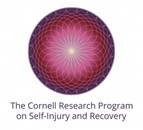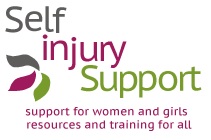Training

Non-Suicidal Self-Injury 101 (CRPSIR)
Cost: 199$
Target audience: Youth serving professionals operating in school systems, systems of higher education, and community-based organizations and mental health providers.
https://portal.ecornell.com/search/publicCourseSearchDetails.do?method=load&courseId=30023374
“This course will review self-injury contexts, epidemiology, function, vectors for contagion and spread, and strategies for detection, intervention and prevention. The focus is on self-injury in community (non-clinical) populations of youth, but does include information useful for anyone wanting to understand core common features, functions, and intervention strategies.”

Training from Self injury Support
https://www.selfinjurysupport.org.uk/new-and-updated-self-harm-training
“Self injury Support has 30 years’ experience in delivering high quality self-harm training to a wide variety of settings and participants. Our approach is participative and reflective, and is focused on bringing the voice of people who use self-harm into the room, building empathy and confidence for supporters.”
Recommendations
Media Guidelines for the Responsible Reporting & Depicting of Nonsuicidal Self-Injury (International Society for the Study of Self-Injury)
https://itriples.org/media_guidelines/
https://www.cambridge.org/core/services/aop-cambridge-core/content/view/F9B81777FE962305A3130163853A536D/S0007125020001919a.pdf/media_guidelines_for_the_responsible_reporting_and_depicting_of_nonsuicidal_selfinjury.pdf
Evidence-based recommendations for management of self harm and suicide in non-specialized health settings (World Health Organization)
https://www.who.int/mental_health/mhgap/evidence/suicide/en/




